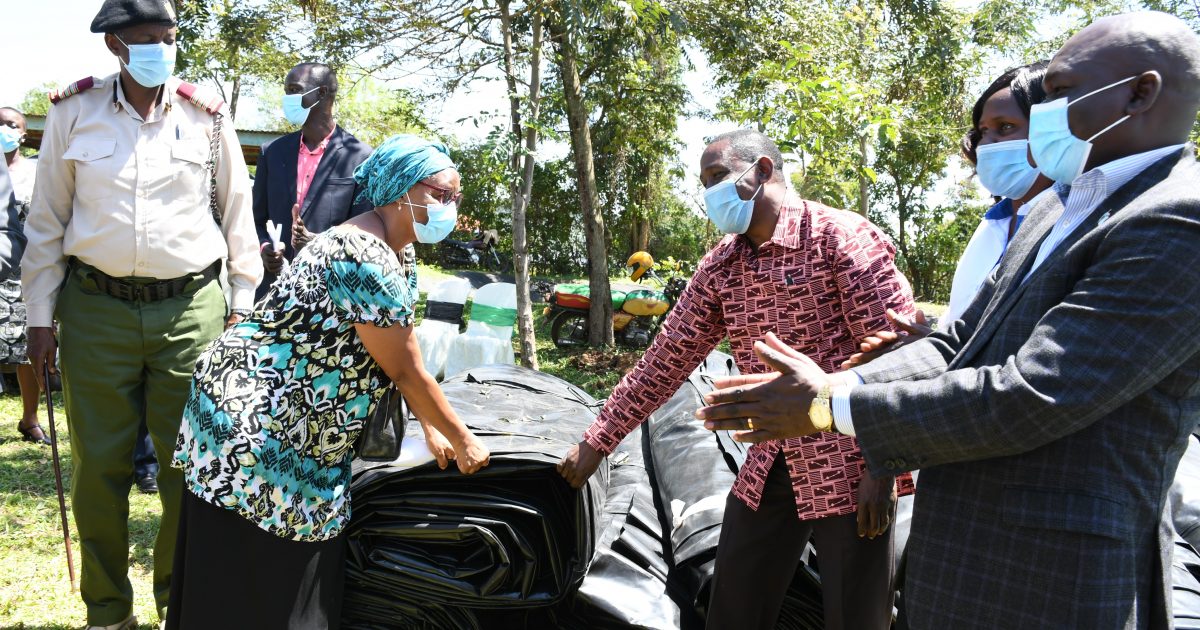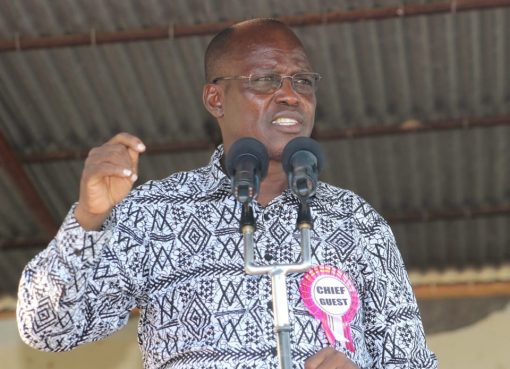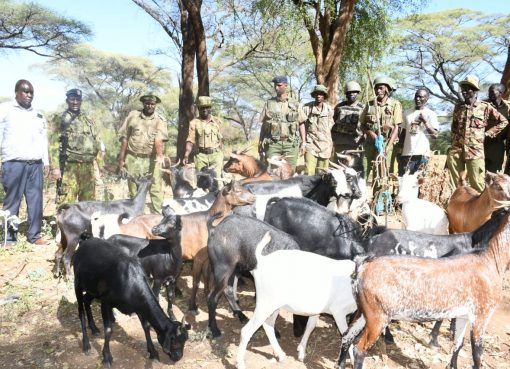Kenya will have a shortfall of 360 million kilograms of fish within the next four years, chief administrative secretary in the Ministry of Agriculture, Livestock, Fisheries and Cooperatives Lawrence Omuhaka has said.
Speaking during the launch and handing over of fish farmers input materials for Aquaculture Business Development programme to beneficiaries in Siaya town, Omuhaka said in order to counter the declining production from capture fisheries and increasing demand, the government had put in place measures aimed at promoting aquaculture development.
“There is already a significant gap between the projected demand and production, which is expected to increase to 360,000 MT by 2025” said the chief administrative secretary who was flanked by the principal secretary for the State Department for Fisheries, Aquaculture & the Blue Economy, Dr Francis Owino, Siaya County Commissioner, Mohammed Barre, County Executive Committee Member for Agriculture, Elizabeth Oduor and Chief Officer, Charles Siso among others.
Omuhaka said the decline in fish production was resulting in a continuous decline in per capita average consumption of fish to an average of 3.5 kg/person/year compared to a global average of 16.3 kg/person/year.
The CAS said that the government, under the Big Four agenda being spearheaded by President Uhuru Kenyatta, was committed towards spurring economic transformation, positively influencing the lives of Kenyans with his ministry playing a critical role in driving the agenda to achieve food and nutrition security for all.
“In particular, the fisheries and aquaculture sub-sector provides food in addition to supporting about a million people directly and indirectly, working as fishers, fish farmers, traders, processors, suppliers and merchants of fishing accessories, and employees and their dependents,” he said.
The Principal Secretary, State Department for Fisheries, Aquaculture and the Blue Economy Dr Francis Owino called for accountability by the farmers who have benefited from the material support to ensure that they increase their production of fish as the government has done its part in bolstering aquaculture in Siaya.
During the occasion, the fish farmers received 187 pond liners, five motorcycles and three laptop computers for extension officers.
The Aquaculture Business Development programme which is funded by the International Fund for Agricultural development (IFAD) targets to directly support 23,400 Level 1 beneficiaries (producing at subsistence level, at less than 100Kgs of fish per year), with the aim of raising productivity and incomes of the smallholder farmers and increase fish production base of one (1) ton of fish per farmer per year.
By Calvin Otieno and Philip Onyango




